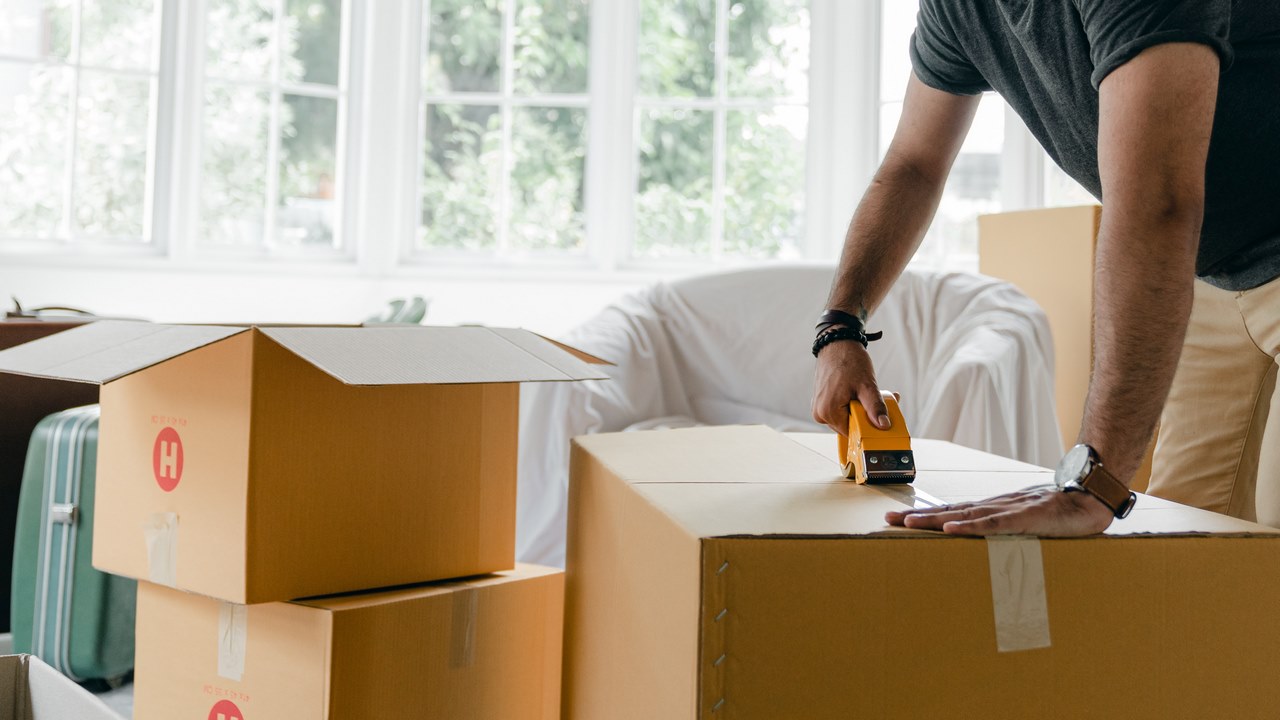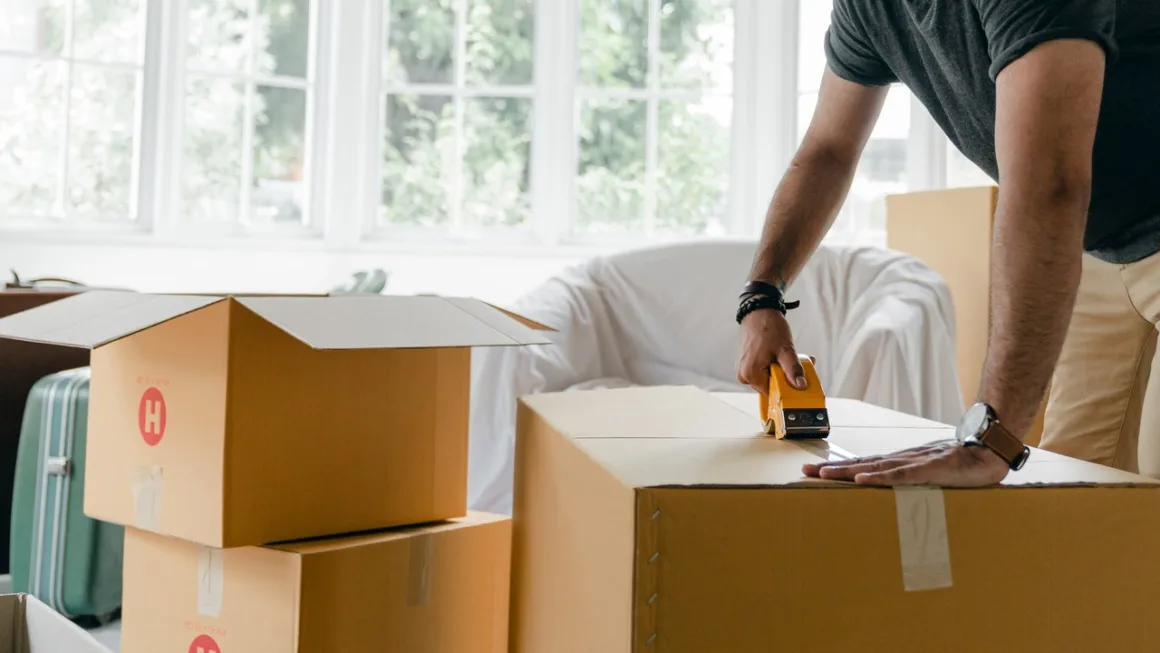Moving houses is a significant milestone for anyone let alone first-timers.

If you’re moving into a new house, you may be overwhelmed with the number of tasks that await you. From hiring movers to conducting house inspections, it can be a lot.
Don’t worry, though. By following a few tips, you can make moving less stressful. Shifting houses is an adventurous and exciting change. As such, your first task is to take a breather and calm down.
Remember that moving is a part of life. You should enjoy it rather than be anxious about it. As long as you’re organized, you can easily get through the process even if you’re doing it for the first time. Simply consider these nine tips as you’re preparing your moving plans:
1. Change Your Official Address
First things first, you need to call everyone and inform them of your new address. Of course, your friends and family should know where you’re going. However, apart from them, you need to tell your bank, local post offices, tax bureaus, and utility service agencies.
After all, you don’t want your phone subscription canceled simply because your phone company sent the bill to the wrong address. Most utility services have online forms, which you can fill in case of a change in address or contact information.
Of course, if you’re not responsible for certain utilities, you don’t have to inform those offices. Some rental homes include utilities in the monthly rental agreement. Simply check with your landlord or real estate agent.
Additionally, don’t forget to update addresses with the social security administration. Otherwise, people will have a hard time verifying your personal information. As a result, you can face problems with social security benefits, vehicle registration, insurance, bank applications, etc.
2. Make a Moving Plan
Once you’ve informed people you’re moving, you can begin the next phase. An effective and well-thought-out plan is essential to a stress-free move. The plan doesn’t have to be complicated. It should simply focus on key aspects of the moving process. For example, have you inspected your new house yet? This step is important for your moving plan as it allows you to figure out repair needs and furniture placement.
If you have kids or pets, you’ll need to check whether the house is safe for them. If not, you have to consider how the child or pet-proofing will work. A house inspection will tell you all of this. Another part of your plan should tackle moving companies. Are you hiring movers or simply asking muscular relatives for help? If it’s the former, you need to research the best moving companies in your area and find affordable rates. And if moving in Birmingham is necessary, you’ll likely need a professional mover’s assistance.
Lastly, on a moving day, you need a solid to-do list. What order are you going to unpack? You can’t just randomly tear through your boxes. You should label them by room so that each box ends up where it’s needed.
Read Also:
3. Begin Your Packing Process
When you have a solid moving plan, you know how you should pack. A house inspection will tell you the size of your new home. As such, you can check whether your current furniture will fit in the new space.
If not, you should sell or donate it. Selling or donating items you don’t need should be a top priority. Many people hold garage sales before they move. The earnings help them pay for new furniture or other moving costs.
Mostly, you don’t want to wait till the last minute to start packing. You should begin buying cardboard boxes and organizing your belongings at least a month before the move.
4. Conduct Thorough Searches of Both Homes
As mentioned, house inspections are important. However, before officially moving, you should conduct a final search of both your old and new home. Here’s what you need to check in your search:
Your Old Home
Many tenants forget to check their old homes before running to their new ones. If you live on rent, you should review your old rental agreement. This step allows you to ensure no contract violation has occurred.
For example, you should ensure that you haven’t damaged or altered your old home in any significant way. Damages may include structural wear and tear such as wall dents. If you find anything, you may not receive back your security deposit.
Your New Home
Next, you should do a final walkthrough of your new home before moving in. This inspection doesn’t simply mean checking room sizes or repair needs. It involves locating important things such as the fuse box and water valve. Most fuse boxes and water valves are in the basement. If you’re moving into an apartment building, you may have a communal fuse box and/or water valve.
5. Clean Your New Home
Before moving in, you should have your new home thoroughly cleaned. This step is easier when the house is empty, so do it a day or two before moving in. You don’t want to deal with dozens of boxes as you try to vacuum each room.
At times, empty homes require professional cleaning. For example, if the floors are stained with grime, you probably need professional equipment to get it out. Similarly, some old houses may have mold infestations, which may require extermination. Be sure to do this before moving in.
7. Ensure the Utilities Are Functional
Although most homes will have functional utilities, it’s not a guarantee. For example, newly constructed homes may not have working electricity or water supply. Many homeowners have to call the electric, gas, and water companies in advance.
Don’t wait until you’ve moved in to make the calls. After all, who wants to spend all day running after movers only to have no running water at night? It seems like a needless headache. The first step comes in handy here. If you’ve informed your utility company that you’re changing addresses, they’ll probably transfer your service to your new location.
8. Be Nice to Your Movers
On the day of the move, everything can seem overwhelming. However, don’t forget to be nice to your movers. They’re handling your personal belongings. You should not only be respectful of them, but you should also appreciate their efforts.
This step includes giving them a tip for their services. As such, account for a 20% standard tip in your overall moving budget. Of course, you can pay them more if you want, but don’t lowball them with anything less than 20%.
9. Be Prepared for Things to Go Wrong
Lastly, it’s essential to remember: that things can go wrong no matter how well you plan your move. Your movers can arrive late. Some of your boxes can get misplaced. Your new sofa may not fit in your living room.
It’s impossible to plan for everything. Therefore, you should remain calm and accept that some things aren’t in your control. Only then, you’ll be able to think on your feet and find solutions to new problems.
Conclusion
In sum, moving can be a hassle, but having a positive attitude makes the process easier to bear. You don’t have to go through it alone, especially if you’re a first-timer. If you simply follow these tips, you can be more organized.
However, don’t be afraid to ask your friends, family, or acquaintances for help. Even if you’re a first-timer, chances are you know people that have moved before. They might have useful advice for you.










